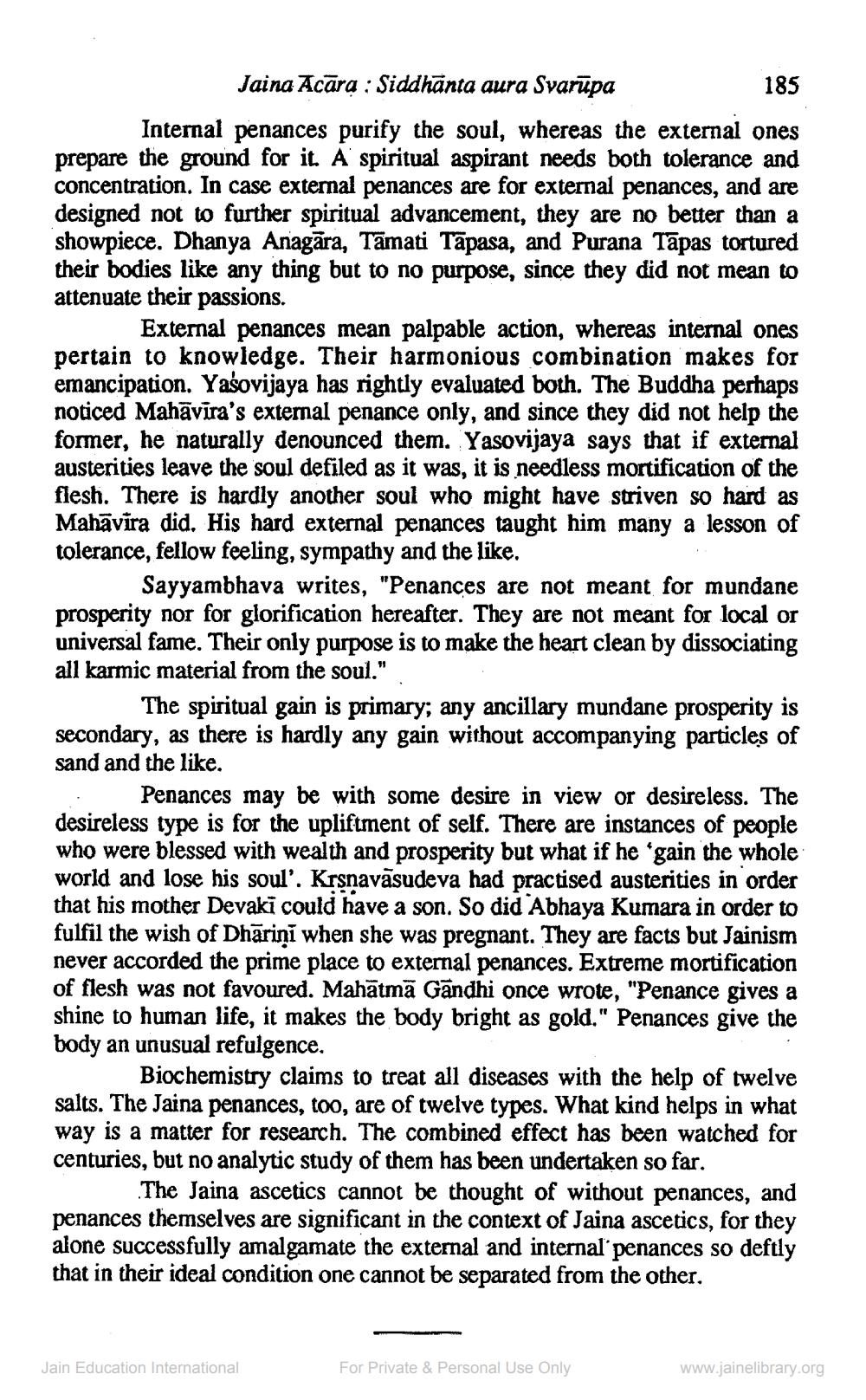________________
Jaina Acāra : Siddhanta aura Svarūpa
185 Internal penances purify the soul, whereas the external ones prepare the ground for it. A spiritual aspirant needs both tolerance and concentration. In case external penances are for external penances, and are designed not to further spiritual advancement, they are no better than a showpiece. Dhanya Anagāra, Tamati Tāpasa, and Purana Tāpas tortured their bodies like any thing but to no purpose, since they did not mean to attenuate their passions.
External penances mean palpable action, whereas internal ones pertain to knowledge. Their harmonious combination makes for emancipation. Yašovijaya has rightly evaluated both. The Buddha perhaps noticed Mahāvīra's extemal penance only, and since they did not help the former, he naturally denounced them. Yasovijaya says that if external austerities leave the soul defiled as it was, it is needless mortification of the flesh. There is hardly another soul who might have striven so hard as Mahāvira did. His hard external penances taught him many a lesson of tolerance, fellow feeling, sympathy and the like.
Sayyambhava writes, "Penances are not meant for mundane prosperity nor for glorification hereafter. They are not meant for local or universal fame. Their only purpose is to make the heart clean by dissociating all karmic material from the soul."
The spiritual gain is primary; any ancillary mundane prosperity is secondary, as there is hardly any gain without accompanying particles of sand and the like.
Penances may be with some desire in view or desireless. The desireless type is for the upliftment of self. There are instances of people who were blessed with wealth and prosperity but what if he gain the whole world and lose his soul'. Krsnavasudeva had practised austerities in order that his mother Devaki could have a son. So did Abhaya Kumara in order to fulfil the wish of Dhāriņi when she was pregnant. They are facts but Jainism never accorded the prime place to external penances. Extreme mortification of flesh was not favoured. Mahātmā Gāndhi once wrote, "Penance gives a shine to human life, it makes the body bright as gold." Penances give the body an unusual refulgence,
Biochemistry claims to treat all diseases with the help of twelve salts. The Jaina penances, too, are of twelve types. What kind helps in what way is a matter for research. The combined effect has been watched for centuries, but no analytic study of them has been undertaken so far.
The Jaina ascetics cannot be thought of without penances, and penances themselves are significant in the context of Jaina ascetics, for they alone successfully amalgamate the external and internal penances so deftly that in their ideal condition one cannot be separated from the other.
Jain Education International
For Private & Personal Use Only
www.jainelibrary.org




